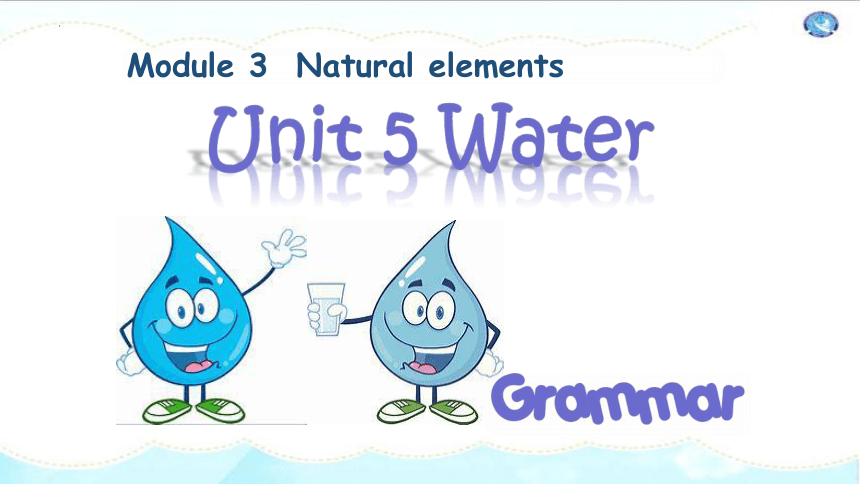(
课件网) Module 3 Natural elements Teaching objectives学习目标: At the end of the class, you are expected : to review how to identify(区别) the countable nouns and the uncountable nouns to talk about the quantities of the countable nouns and the uncountable nouns. to ask and answer the questions about the quantities Look at the video. Try to tell the difference of the countable nouns and uncountable nouns. Countable nouns are nouns that we can count. Eg.apple, banana, organe,etc. Uncountable nouns are nouns that we can not count. Eg.water,milk an/one apple two apples three apples some nouns can be countable nouns and uncountable nouns. It depends on situations. Eg. cake,etc. countable uncountable sandwich bread apple pear egg soup milk orange juice cheese chicken wing Warming-up Classify the food. tomato hamburger 名词回顾 类型 变化规则 举例 特殊情况 一般名词 cap→caps, cake→cakes, dog→dogs, apple→apples — 以字母s,x,sh,ch结尾的名词 glass→glasses, watch→watches,brush→brushes, box→boxes stomachs 以字母f或fe结尾的名词 life→lives, knife→knives, leaf→leaves, wife→wives roof→roofs, belief→beliefs, proof→proofs 词尾加-s 词尾加-es 把f或fe变为ve再加-s 类型 变化规则 举例 特殊情况 以辅音字母加y结尾的名词 story→stories, baby→babies,party→parties, lady→ladies 以元音+y,直接加s,如:boy→boys,day→days 以o结尾的名词 tomato→tomatoes, potato→potatoes, hero→heroes, echo→echoes, kangaroo→kangaroos, zoo→zoos, piano→pianos, photo→photos zero的复数既可以加-s,也可以加-es 变y为i再加-es 词尾加-s或-es 特殊变化 ①单复同形 Chinese- Japanese- deer- (鹿) fish- (鱼) Sheep- (羊) ③a变e: man- (男人) woman- (女人) policeman - (男警察) ②双o变双e: goose- (鹅) tooth- (牙齿) foot- (脚) 有些名词通常以复数形式出现。 如:scissors(剪刀),trousers(裤子),clothes(衣服),glasses(眼镜),shorts(短裤)等 Chinese Japanese deer fish sheep geese teeth feet men women policeme n Talking about quantities Presentation No, there isn’t. no 没有 There are no eggs in the fridge. There is no bread in the fridge. Is there any food in the fridge There is no food in the fridge. Let's buy some. I should buy _____ eggs and _____ bread. many 许多 much许多 What food should I buy many much 许多鸡蛋和许多面包 I should buy _____ pears and ____ milk. many much 许多梨和许多牛奶 a few 一些 a little 一些 I should buy _____ tomatoes and_____ cheese. What food should I buy a few a little 一些西红柿和一些奶酪 a few a little a lot of There are _____ children here. a few a few a little a lot of There is _____ wine in the glass. a little There is no bread in the fridge. There are no eggs in the fridge. We should buy many eggs and much bread. We should buy a few tomatoes and a little cheese. Could you find the rules countable nouns uncountable nouns both how many how much a lot of (not) many许多 (not) much许多 a few一些 too few太少 a little一些 too little太少 (not) enough some(肯)/any(否/疑问) no Summary few几乎没有 to ... ...

